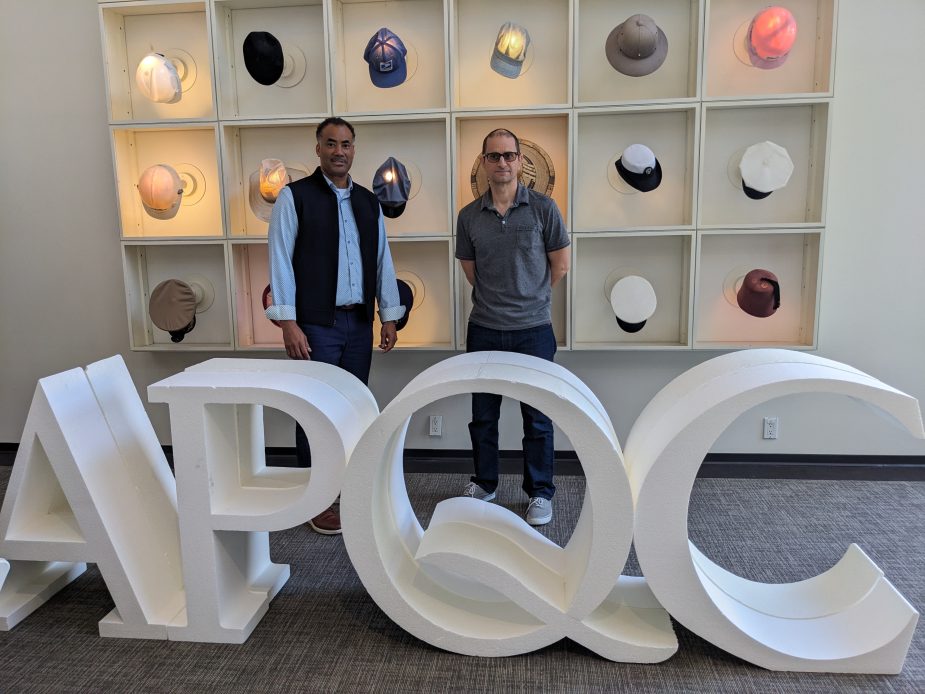Knowledge management (KM), as defined by the American Productivity & Quality Center is a collection of systematic approaches to help information and knowledge flow to and between the right people at the right time. While knowledge management is necessary for the effective management of all information critical to an organization’s success, it’s often an afterthought and not a priority.
“All companies say how important [KM] is and that they need it, but don’t know how to implement a [KM] program effectively,” says Dion J. Hopkins, Knowledge Manager.
In March, Hopkins and Marshall McBride, Program Manager, attended the APQC Certified Knowledge Manager Course in Houston, Texas. APQC is a leader in best practices, knowledge management, and processes and performance.
Hopkins and McBride, both supporting the KM Support Services contract at U.S. Army Training and Doctrine Command’s (TRADOC) Office of the Chief Knowledge Officer, Ft. Eustis, Virginia, spent time at the course to broaden their KM skillsets.
“APQC’s Knowledge Management Course prepares individuals to be knowledge managers within their field of expertise. We discussed various KM approaches and techniques and how to use them to improve operations and decision making,” says Hopkins.
While Hopkins had some KM training prior to the APQC course, he did not have any industry certifications in the field, receiving most of his training at the Army KM Proponent, Fort Leavenworth, Kansas.
“I was happy to attend this course and get some commercial validation for my KM skills. KM is one of those skills that are hard to gauge and measure,” said Hopkins. “I am glad I work for a company that takes an interest in expanding its employee’s knowledge base while traveling.”
In addition to the course being incredibly beneficial for the pair, Hopkins also said they made time to take advantage of their surroundings to partake in some good seafood and Cajun-inspired barbecue.
The skills gained at the conference will benefit not only Hopkins and McBride, but will have a ripple effect, positively impacting the teams they work with on a regular basis, and rippling outward as they use their newly attained skills to build upon best practices and improve KM programs across TRADOC.
Written by: Sheila Rupp

